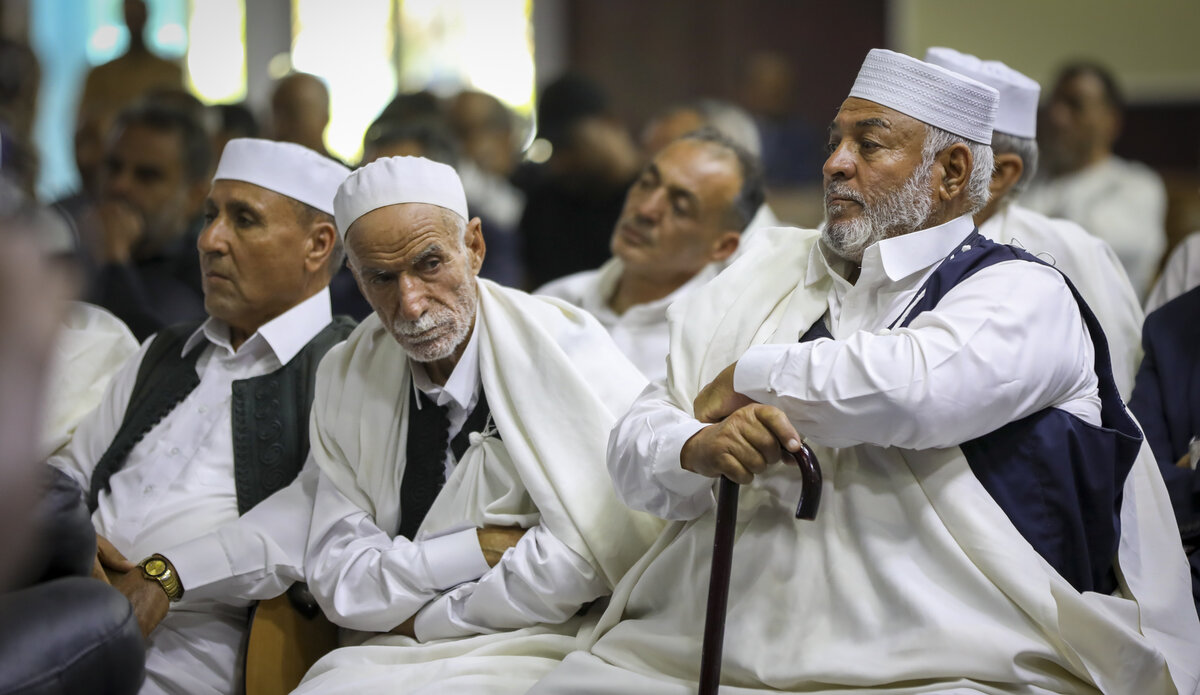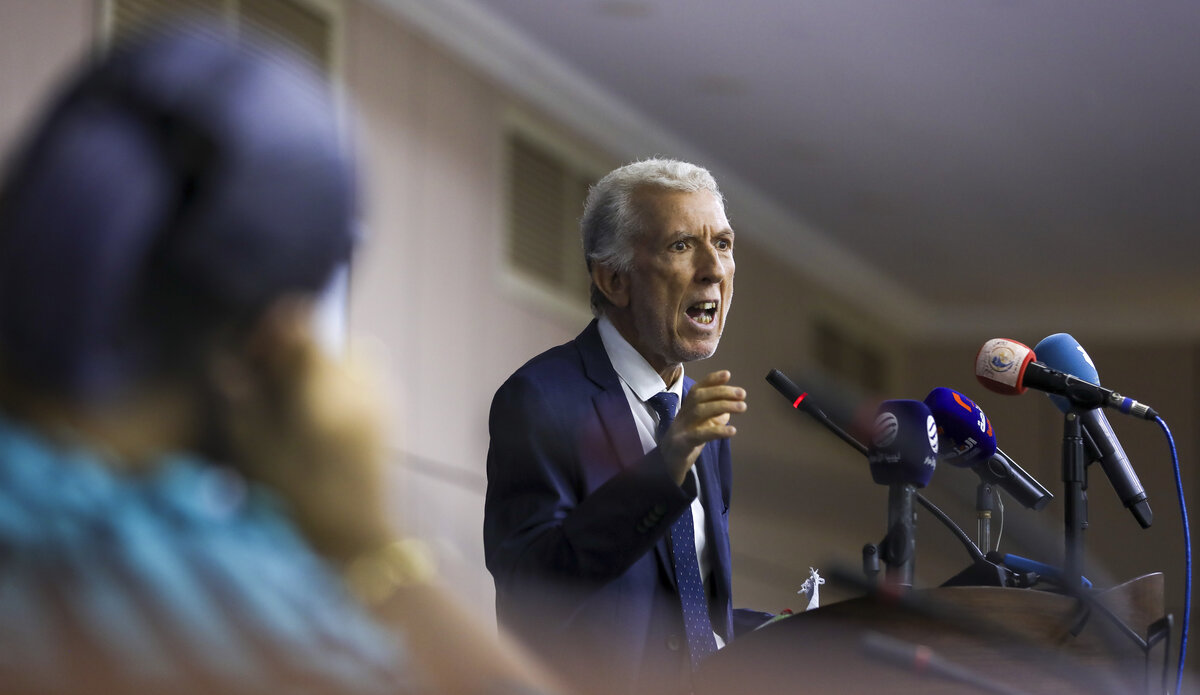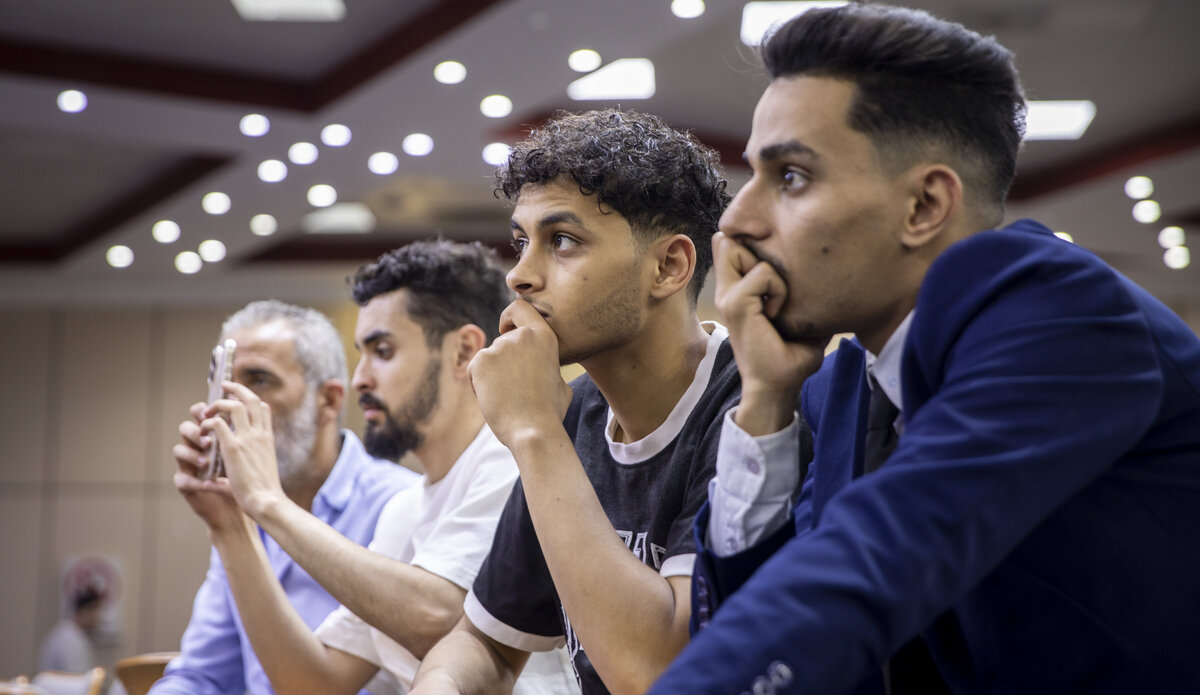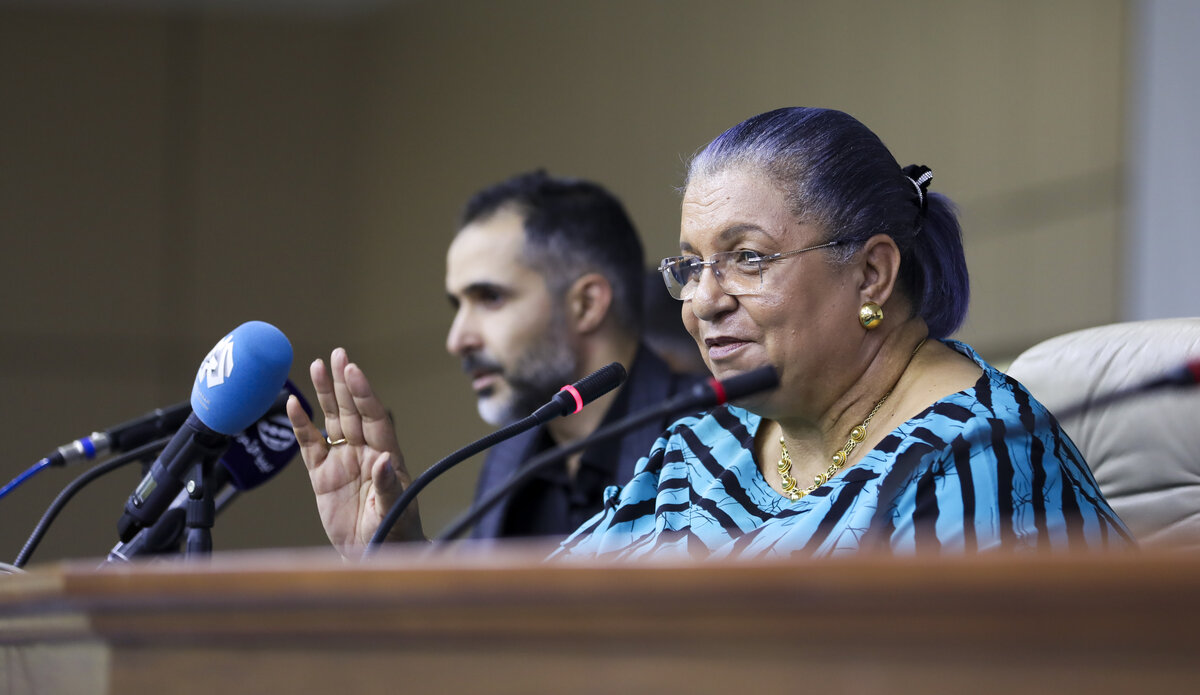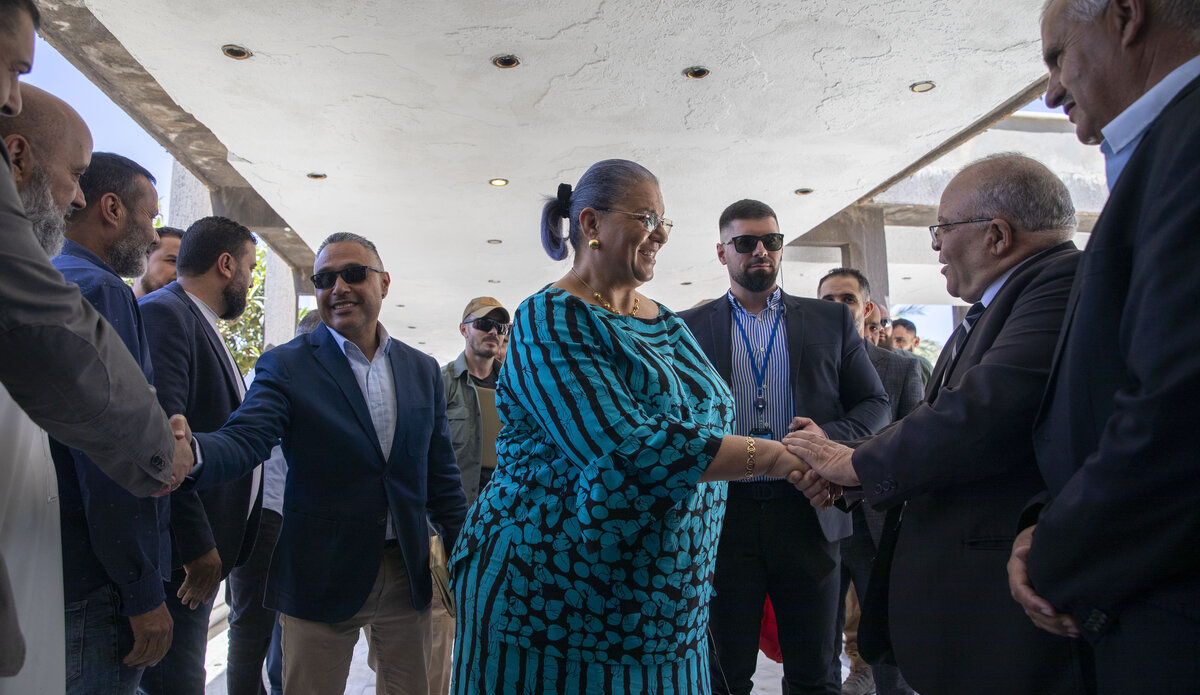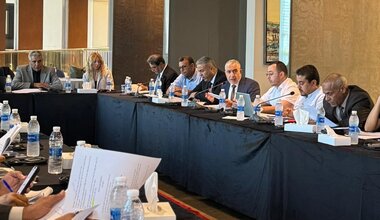Town hall: Zawiyah residents call for political change, share feedback on political process proposals
Zawiyah residents expressed frustration with the deteriorating political and security situation and called for action at a town hall-style meeting Monday, organized by the United Nations Support Mission in Libya.
More than 150 people attended the meeting, which was hosted by the Mayor of Central Zawiyah, including community members from Zawiyah Center, Zawiyah West, Zawyiah South, Sorman, Sabratha, Al OIjeilat, Al Jemell Almanshaba, Zleten Al Assa, Abu Serra, Nalut, Wazen, Kabo, Yefren Zwara, and Regdaleen municipalities. Participants ranged from youth to elders.
The meeting is part of the Mission’s efforts to engage the community about the best way to take the country to elections and unify state institutions. Similar town hall-style meetings are planned in cities across the country. Alongside its ongoing meetings with political parties, civil society organizations, security actors, cultural components, and women’s and youth groups, UNSMIL will also soon launch an online public poll.
“The recent armed clashes and the subsequent large-scale protests in the western region are testimony to the unsustainability of the status quo,” said Special Representative to the Secretary-General Hanna Tetteh, relating the mission’s deep sadness over the loss of lives in the 12 and 13 May clashes, the suffering of the injured and the plight of civilians terrified by gunfire in their neighborhoods. “It is more urgent now than ever to push to reach a consensual roadmap towards elections and unified institutions.”
Noting that each comes with its own set of challenges, SRSG Tetteh briefed the crowd on the four options the Advisory Committee proposed in May to forge a consensual roadmap forward. They include:
1. Conducting presidential and legislative elections simultaneously with adjustments to contentious issues in the current electoral laws;
2. Conducting parliamentary elections first, followed by adopting a permanent constitution, and then by conducting presidential elections;
3. Adopting a permanent constitution before national elections; or
4. Establishing a political dialogue committee, according to article 64 of the Libyan Political Agreement, to temporarily replace all institutions, finalize electoral laws and select a temporary government.
The Advisory Committee is a 20-member group of Libyan legal, constitutional and political experts that UNSMIL tasked to analyze the issues blocking progress toward a political resolution, including disagreements about the sequencing of events and contentious
issues within the electoral laws, SRSG Tetteh said. UNSMIL will consider the community feedback collected on the proposals as it considers how to take the political process forward.
Many who commented demanded a new government, emphasizing their desire for a peaceful solution. They call on UNSMIL to listen to the voice of the people
Several expressed support for Option 4 and the immediate dissolution of the current political institutions, providing the opportunity for the Libyan people to build their state.
Others argued for simultaneous presidential and parliamentary elections, saying it was the most feasible.
A few community members also raised the idea of forming a new government to be headed by the head of the Supreme Court, to be in power no more than 120 days, as a way to unite the east and west.
During the meeting, residents also lamented a prolonged lack of security, calling, in impassioned speeches, for “no more widows.” They called to end corruption and nepotism and raised concern about maintaining Libyan sovereignty and the presence of foreign fighters.
SRSG Tetteh reiterated the Mission’s support for strengthening the fragile truce following the May clashes and advocating against unilateral actions that could derail the political process.
“The era of resorting to violence for political or territorial gain must come to an end,” she said.
Thanking the residents for their comments, SRSG Tetteh emphasized the criticality of community engagement in the political process.
“We must build consensus on the way forward, ensuring all perspectives are considered, with mutual agreement,” she said. “These are your communities, your homes, your brothers and sisters. You must be the ones to direct the way forward.”
Read more about the Advisory Committee recommendations: Here
 United Nations Peacekeeping
United Nations Peacekeeping UN
UN
